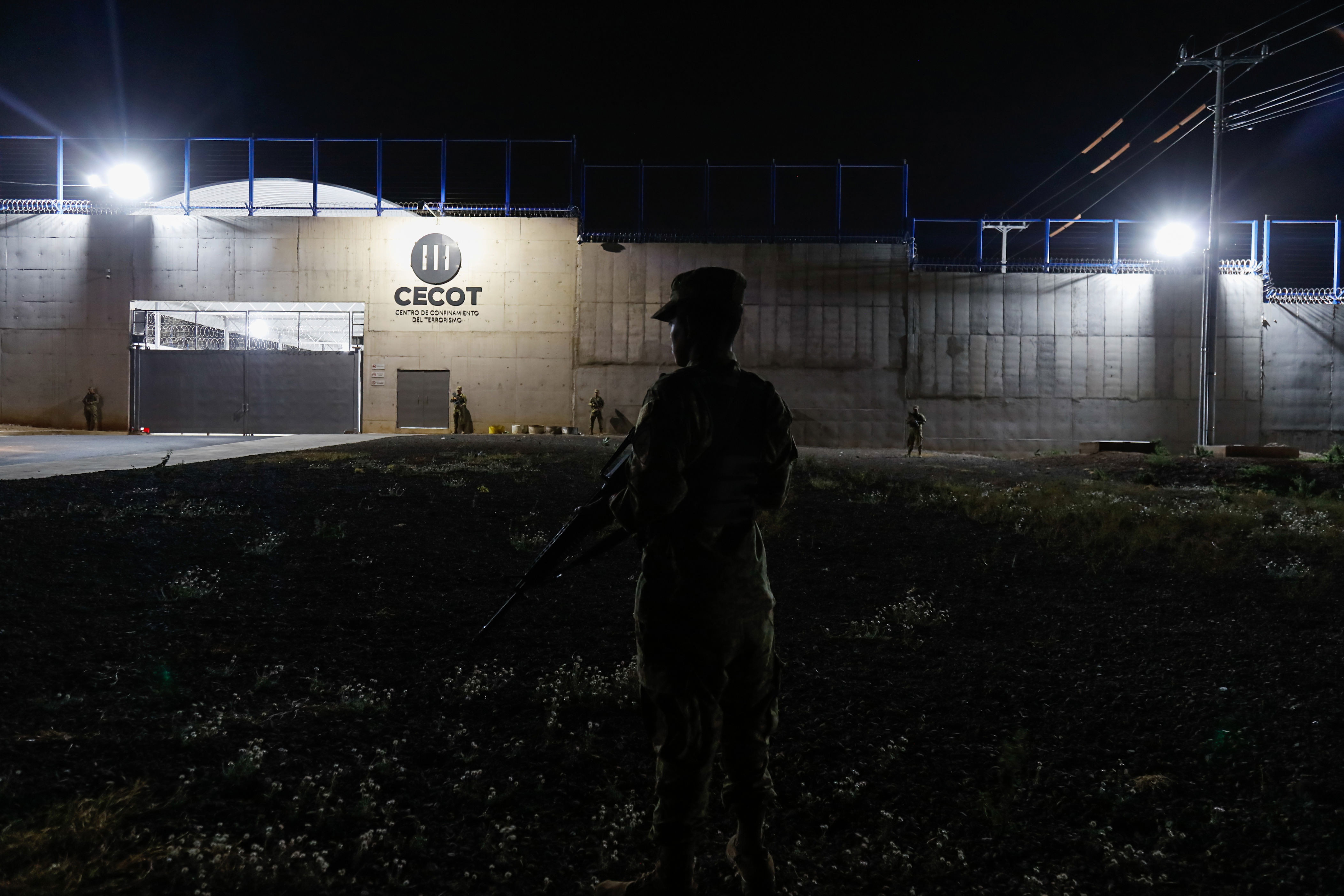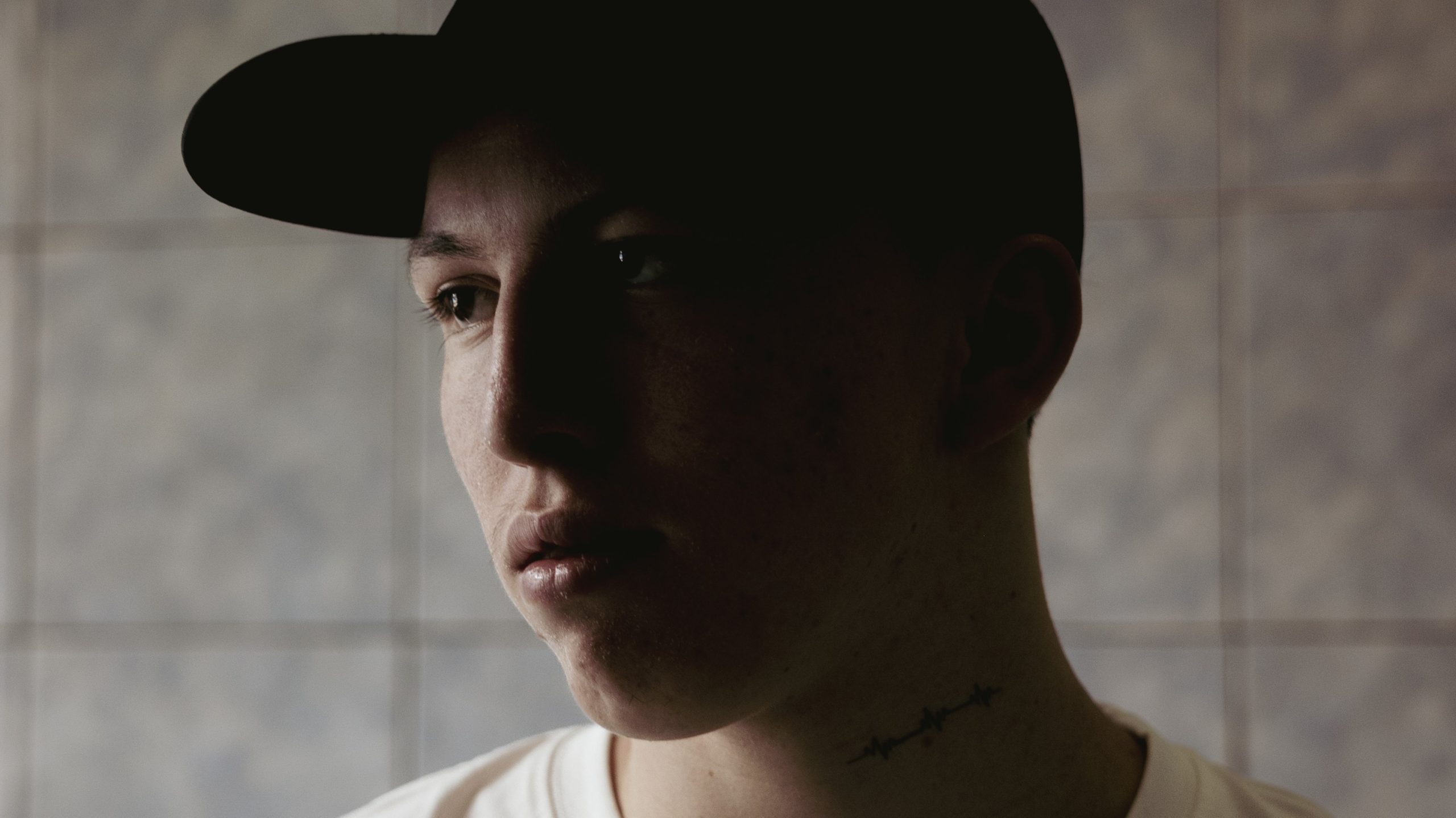One nightIn mid-May, some Venezuelan migrants who had been deported from the United States to a prison in El Salvador attempted to use metal bed rails to break open their cell locks. This was an ineffective act of defiance; no one believed they could actually escape. Nevertheless, the response was immediate. For six straight days, the prisoners endured extended beatings, according to three inmates. On the final day, male guards brought in their female counterparts, who hit the naked prisoners while the male guards filmed the incidents on their phones and laughed. The female guards would count to 20 as they administered the beatings, and if the prisoners made any noise or cried out, they would begin again.
Tito Martínez, one of the prisoners, remembered that a prison nurse was observing. “Smack the piñata,” she encouraged.
When the government of El Salvador established the prison facility called CECOT in 2023, the nation’s security minister stated that the prisoners would only be able to leave “inside a coffin.” This promise has mostly been fulfilled. The Salvadoran human-rights group Cristosal has recorded instances of prisoners being taken out of the jail for urgent medical treatment, but these individuals passed away shortly afterward, without anyone having the chance to inquire about their experiences within the prison.
Very little is understood about daily life at CECOT, the Spanish name for the Terrorism Confinement Center, which is mainly revealed through media tours organized by President Nayib Bukele. These tours depict men packed into cells with metal bunks stacked high, resembling human storage units. In most online videos, the men—some displaying gang-related facial tattoos—remain quiet. The Salvadoran government has fostered CECOT’s fearsome image, transforming the facility into a showcase for Bukele’s strict anti-gang strategies for the media. However, media access is closely monitored, and interviews with inmates are uncommon and heavily restricted.
[Read: The remarkable prison situation in El Salvador]
On Friday, for the first time, a group of inmates left the CECOT facility as free individuals. These 252 Venezuelans had been deported to El Salvador by the Trump administration in March, under the claim—without substantial proof—that they were affiliated with gangs. This month, Venezuelan President Nicolás Maduro arranged an exchange with the United States, releasing 10 American citizens held in his country along with numerous Venezuelan political prisoners. As part of the deal, the Venezuelans in El Salvador were flown back to Caracas. They provided thorough descriptions of the abuse and severe treatment they endured. (The government of El Salvador did not respond to a request for comment regarding their allegations.)
Four ex-prisoners shared with me that they were hit, kicked, and beaten with sticks. They were cut off from communication with their loved ones, denied access to legal assistance, and harassed by staff. All of them remembered periods spent in a disciplinary cell called “the island,” which was a dark room without any water where they slept on the floor. During those times, the only light they saw came from a faint bulb hanging from the ceiling that lit up a cross.
I talked withKeider Alexander Flores called via phone yesterday, just a few hours after Venezuelan police officers left him at his mother’s house in Caracas.
Flores mentioned that he and his sibling departed from Venezuela in 2023, traveling through the jungles ofPanama’s Darién Gapand taking buses all the way to Mexico. They sought an appointment to enter the United States legally and arrived in Texas in August. Flores quickly moved to Dallas and began an asylum application, but he never finished it. He found a job laying carpet. His true love was music: He worked as a DJ under the name Keyder Flower. In one of his Instagram posts, he shows off his youthful physique as he plays tracks by a pool.
[From the September 2024 edition: Seventy miles in hell]
In December, following a DJ performance at a house party in Dallas, Flores was in the passenger seat of a friend’s vehicle when they were stopped by police. Flores mentioned to me that they had used marijuana, leading to their arrest and transportation to the station. Subsequently, he was placed in ICE custody. During an immigration hearing, the judge informed him that he would be barred from returning to the United States for 10 years due to violating U.S. law. When asked which country he preferred to be deported to, Flores responded with Venezuela.

While being held in ICE custody, Flores discovered that he had been identified as “an active member” of the Venezuelan gang Tren de Aragua. Federal agents arrived to question him, claiming they had noticed his photos on Instagram and found his hand gestures suspicious. “I was making a cool sign, but they said it was a gesture used by Tren de Aragua,” Flores explained to me. Flores was aware of CECOT. He had watched videos at the ICE detention facility in Texas, where the TV occasionally aired cable news. In mid-March, he called his brother from detention to inform him that he was about to be deported to Venezuela; two days later, he was placed on a flight. ICE guards prevented passengers from opening the window shades during the journey. Flores and the other detainees realized they were in El Salvador only after landing.
Another recently released Venezuelan detainee I spoke with, Juan José Ramos, shared with me that he entered the United States lawfully, with a scheduled appointment for an asylum interview, and had just begun to settle in Utah when ICE officers pulled his car over on the way to Walmart, arresting him without any reason given. He mentioned that upon arriving at CECOT, they saw prisoners dressed in white shirts and shorts, with their heads completely shaved. Ramos asked a Salvadoran guard who these men were and why they were crying. The guard responded: “That’s you. All of you will end up like that. We will treat you all the same.”
Flores, Ramos, and others I spoke with provided similar descriptions of what occurred next. The Venezuelans were relocated to a section of CECOT called Module 8, which contained 32 cells, and they had no contact with the other prisoners. The inmates communicated through hand signals, as speaking resulted in beatings. They slept on metal bunks, frequently without mattresses. Soap and juice bottles were considered luxuries that were available before visits from Red Cross representatives, who arrived twice during their four-month period. Occasionally, the guards provided the prisoners with better meals than usual, took photos with their phones, and then removed the food, according to Ramos, Flores, and others.
A disturbance occurred in April following an incident where guards severely beat an inmate, causing him to convulse, Flores shared with me. This event made the Venezuelans realize they needed to take action. “If your friend was being beaten, would you just stand by and watch?” Flores questioned me.
[Adam Serwer: Trump’s Salvadoran Prison Camp]
Seven Venezuelans arrived a few days after the others, having been deported from Guantánamo, where a hunger strike had occurred. They proposed following the same action at CECOT. Flores, Ramos, and others I spoke with mentioned that every prisoner they knew participated in the hunger strike, which continued for several days. Some escalated their protest by cutting themselves on the edges of their metal bunks. They referred to this as ahuelga de sangre: “blood strike.”
Three or four daysAfter the strike began, two prison officials arrived to discuss terms. The prisoners agreed to halt the strike in return for a promise that the beatings would cease. “They allowed us to live for a time,” Flores said to me. However, in mid-May, when some inmates refused to allow their cells to be searched, the guards attacked them. This led to a second uprising. In response, the guards fired pellets at the prisoners. Following this, there were six days of continued beatings.
Martínez, 26, shared with me that he was stopped while driving in El Paso, Texas, in February due to an expired license plate. The officer was prepared to give him a warning, but requested Martínez to take off his shirt. Martínez has tattoos featuring Bible passages and his wife’s name. The officer then contacted ICE.
Martínez, who became ill following the hunger strike, was taken to a clinic, where a nurse informed him that he had experienced significant liver damage. After the beatings, Martínez mentioned, some prisoners vomited blood, while others were unable to walk for several days. “If they’re going to kill us, I hope they do it quickly,” he said he told himself.
The guards informed him he would spend the remainder of his life at CECOT. Until early Friday morning, when Martínez was sent back home just as suddenly as he had arrived, he had believed their words.
Nick Miroff was involved in this report.







